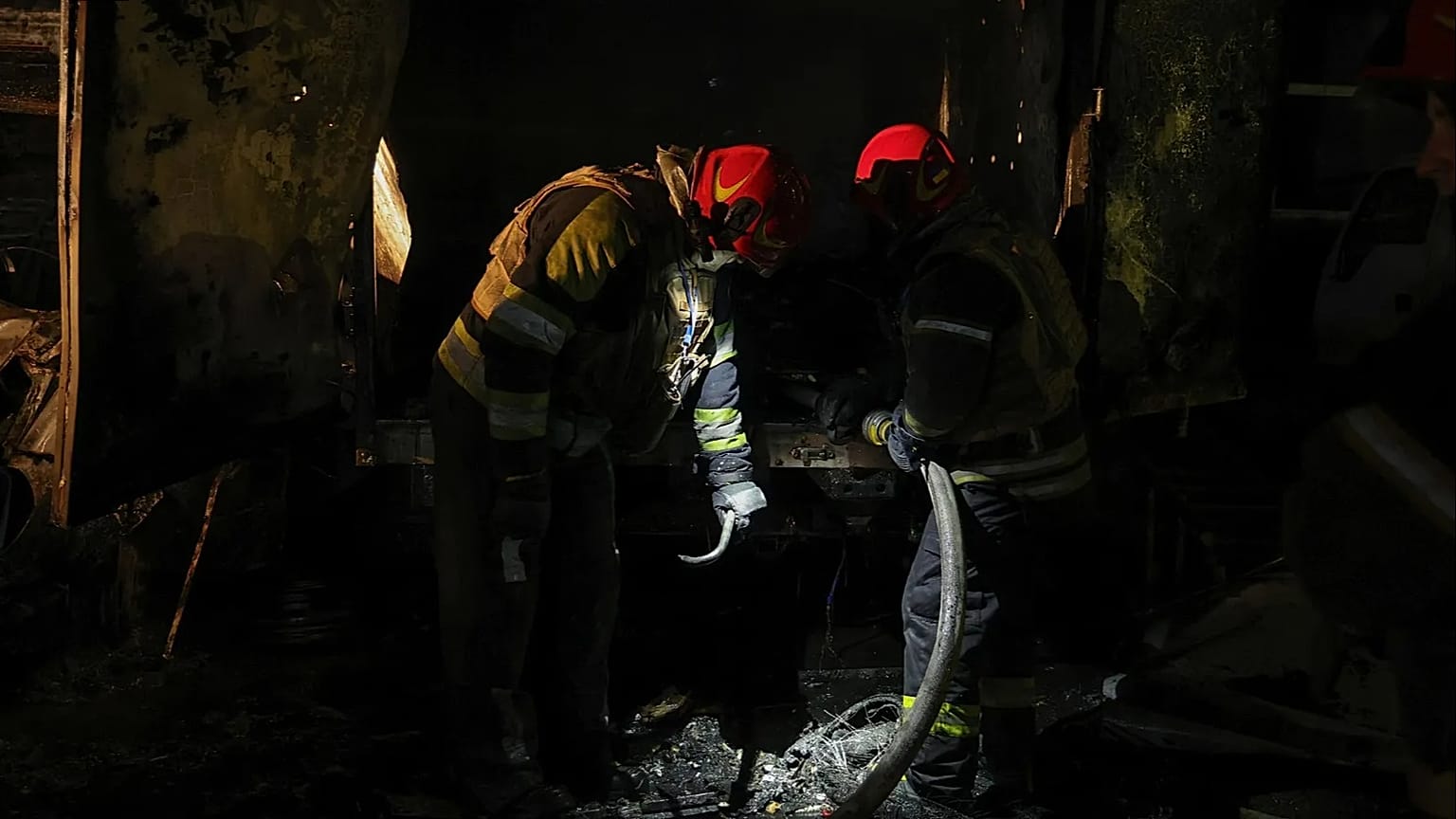Business
Ukraine and Russia Exchange Strikes on Energy Facilities Amid Blackouts

A significant escalation in hostilities between Ukraine and Russia unfolded over the weekend, resulting in extensive damage to energy infrastructure on both sides. Ukrainian energy companies reported a complete power outage affecting major cities, including Kyiv and Kharkiv, after Russian forces targeted two thermal power plants overnight. In retaliation, Ukraine launched strikes against Russian energy facilities, highlighting the ongoing conflict’s impact on civilian life and infrastructure.
On the night of March 16, 2024, a combined assault of missiles and drones from Russia led to a massive blackout in Kyiv and Kharkiv. The Ukrainian Energy Minister, Svitlana Hrynchuk, indicated that the situation was dire, particularly in the regions of Kharkiv, Poltava, and Donetsk, which faced repeated strikes. Centrenergo, one of Ukraine’s largest power providers, confirmed that operations at two thermal power plants supplying electricity to these cities were completely shut down due to the attacks.
In a Facebook post, Centrenergo described the scale of the assault, stating, “An unprecedented number of missiles and countless drones targeted the same thermal power plants that had only recently been restored after the crushing attack of 2024.” By Sunday morning, power had been restored to most affected areas, yet officials warned that a schedule of rolling blackouts would be necessary for at least two more days.
Ukrainian officials expressed grave concerns over the strikes. Andrii Sybiha, Ukraine’s Foreign Minister, stated that Russian attacks intentionally jeopardized nuclear safety in Europe, specifically mentioning substations connected to the Khmelnytskyi and Rivne nuclear power plants. “These were not accidental but well-planned strikes. We call for an urgent meeting of the IAEA Board of Governors to respond to these unacceptable risks,” he declared.
The scale of Russia’s assault was substantial, with over 450 drones and 45 missiles launched against Ukraine on Saturday night. President Volodymyr Zelenskyy urged Western nations to increase pressure on Russia, advocating for comprehensive sanctions against the Russian energy sector. “For every energy strike by Moscow, there should be a sanctions response on the entire Russian energy sector without exception,” he stated.
While Russia’s attacks targeted Ukrainian energy infrastructure, Ukraine retaliated by striking facilities in the Voronezh and Belgorod regions. Reports indicated that a thermal power plant in Voronezh was hit, disrupting electricity supply to several districts. Regional Governor Aleksandr Gusev confirmed that electricity supply was temporarily suspended in some areas, though it was later restored to normal levels.
In Belgorod, the “Luch” Combined Heat and Power Plant was also targeted, resulting in significant outages affecting tens of thousands of residents. Regional Governor Vyacheslav Gladkov reported that the city experienced serious damage to its power and heating systems due to the overnight strikes.
As both nations continue to exchange blows, the humanitarian impact of these strikes remains a pressing concern. The ongoing conflict is not only a military confrontation but a struggle that deeply affects civilian lives and the stability of critical infrastructure in the region.
-

 Top Stories3 months ago
Top Stories3 months agoTributes Surge for 9-Year-Old Leon Briody After Cancer Battle
-

 Entertainment4 months ago
Entertainment4 months agoAimee Osbourne Joins Family for Emotional Tribute to Ozzy
-

 Politics4 months ago
Politics4 months agoDanny Healy-Rae Considers Complaint After Altercation with Garda
-

 Top Stories4 months ago
Top Stories4 months agoIreland Enjoys Summer Heat as Hurricane Erin Approaches Atlantic
-

 World5 months ago
World5 months agoHawaii Commemorates 80 Years Since Hiroshima Bombing with Ceremony
-

 Top Stories3 months ago
Top Stories3 months agoNewcastle West Woman Patricia Foley Found Safe After Urgent Search
-

 Top Stories5 months ago
Top Stories5 months agoFianna Fáil TDs Urgently Consider Maire Geoghegan-Quinn for Presidency
-

 World5 months ago
World5 months agoCouple Convicted of Murdering Two-Year-Old Grandson in Wales
-

 World5 months ago
World5 months agoGaza Aid Distribution Tragedy: 20 Killed Amid Ongoing Violence
-

 World5 months ago
World5 months agoAristocrat Constance Marten and Partner Convicted of Infant Murder
-

 Top Stories4 months ago
Top Stories4 months agoClimbing Errigal: A Must-Do Summer Adventure in Donegal
-

 Top Stories4 months ago
Top Stories4 months agoHike Donegal’s Errigal Mountain NOW for Unforgettable Summer Views









